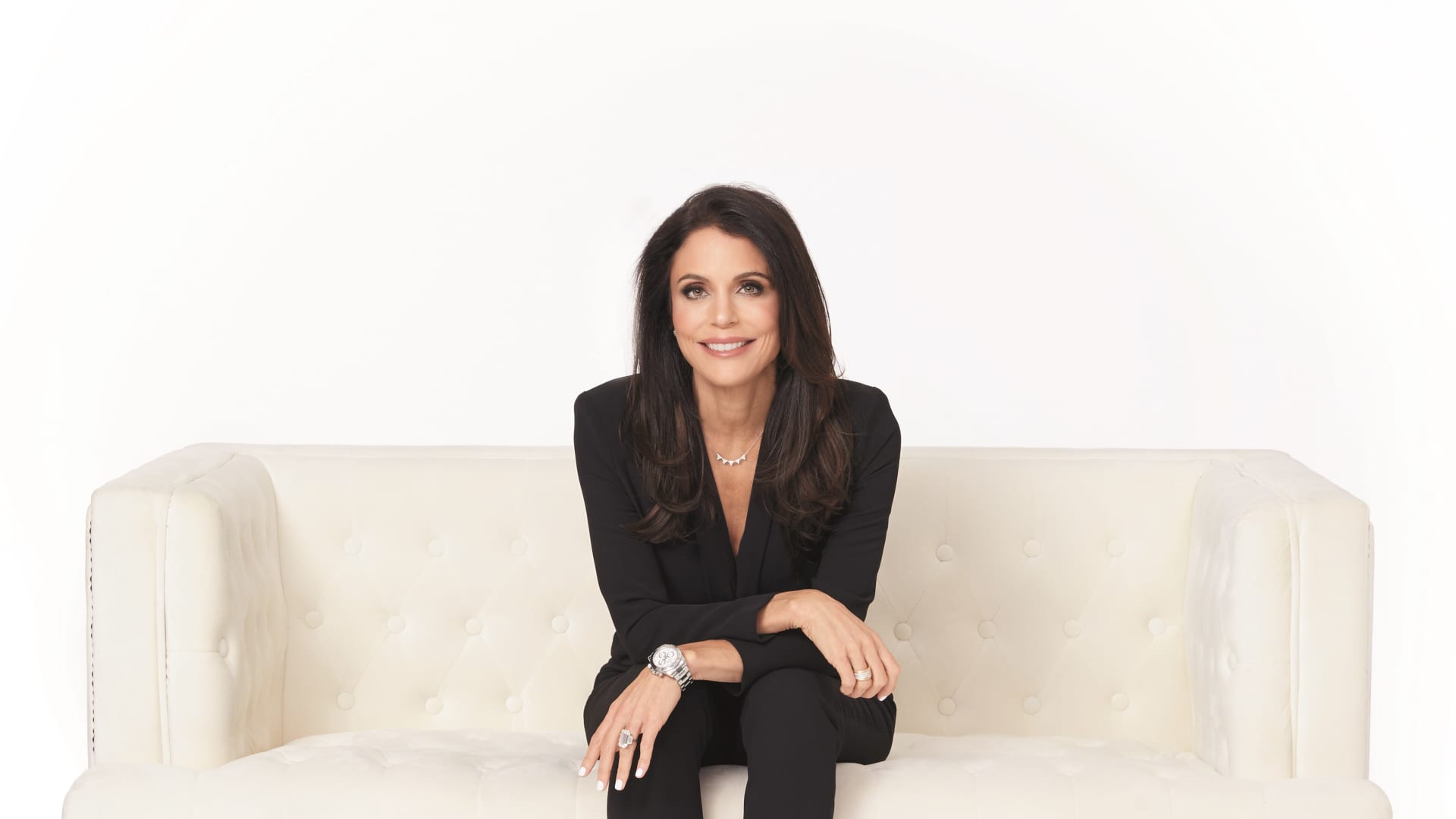“I truthfully didn’t even know the word entrepreneur. I was in my late thirties, and I didn’t know the word ‘brand,’ I didn’t know the word ‘entrepreneur,'” Bethenny Frankel, founder of SkinnyGirl, told Sharon Epperson at the CNBC Small Business Playbook virtual summit on Wednesday.
Now, just over a decade later, Frankel is a widely successful and self-made entrepreneur, who sold her pre-packaged low-calorie margarita, Skinnygirl Cocktails, for a reported $120 million, and continues to delve into a series of ambitious business ventures with her Skinnygirl lifestyle brand, ranging from specialty food items to branded apparel.
While she may not have always envisioned a life in business, she always envisioned her next big idea, and what it would take to turn it into reality, she told Epperson.
“I just always was an ideas person. I could not help but to execute on crazy ideas that I had,” Frankel said.
The Skinnygirl brand was one of those ideas — the simple vision of having her own signature cocktail. “I think very simply, I wanted to have a cocktail for myself, that I wanted to drink, and that could be a signature cocktail that I always went for,” she explained.
That personal need was not an idea she immediately knew would catch on with millions of others.
“I had no idea that I was creating the first-ever low-calorie margarita or creating a category in ready-to-drink cocktails,” she said. But once she realized how popular the concept was, she knew that she had the opportunity to turn it into a successful business.
That transition to business building is where Frankel stresses that having a good entrepreneurial idea isn’t what made her story exceptional. “When you’re young, and you think you’re smart, everybody thinks they’re smart. You think you have a good idea — everyone has a good idea,” she said.
A good idea may have been the start in setting her apart, but drive and motivation are more important in business.
“I’ve really realized it’s those people that have that drive and that determination and that passion, that unstoppable nature — that’s really the true ingredient for success,” Frankel said. “Because so many people have good ideas. And the world and technology and what’s popular is changing all of the time, so if you have that constant — of being a hard, old-school worker, you’ll be successful. People around you will see how valuable that is, because it’s very, very rare,” she added.
Frankel says in addition to a strong work ethic, personal investment and authenticity are essential pieces in a successful entrepreneurial venture.
“Business is lonely, you are alone,” she said. “You sign that dotted line alone, it’s your reputation, it’s all about you alone. … No one cares as much as you about your business,” she told Epperson.
She also rejects the idea that business and personal life should — or can — be kept separate.
The line between business life and personal life has become increasingly blurred, especially since the onset of the pandemic, as many workers began to work from home, and the decisions made in one sphere have held new significance in the other.
And in a time characterized by inflation and rising interest rates, and in which business owners are increasingly concerned with supply chain issues and labor shortages, business choices have proven to be unavoidably personal choices, too.
“Business is very, very personal. How I spend my money in my personal life could affect the money that I would or wouldn’t have to invest in business ideas. How I operate in my business life could affect the types of schools my daughter would have gone to, or how I treat my business affects how I spend my time — which is so personal,” Frankel said.
New business formation numbers have been high since the pandemic began, and Frankel said uncertain times also provide opportunity.
“I think that people keep looking at the equation one way and keep trying the same key in the door, but now is the time when you have to fumble around and try a bunch of different keys and figure out what fits for you. Because when you have times of disarray, when you have times of crazy chaos, there is also a silver lining. There are other opportunities,” she said.
Frankel, who has bought and sold real estate over the years, pivoted to suburban real estate at the beginning of the pandemic, which proved to be a savvy business move.
Still, even amid business evolution, staying grounded in your core mission is essential, according to Frankel. “You have to be able to pivot and shift, but also stay true to the base and core of what your business is,” she said.
For any entrepreneur who is facing stagnation, Frankel advises focusing on their own needs and interests, rather than worrying about what others are doing. “Think about what you react to. What are you consuming, what are you digesting, what are you interested in, what are you attracted to, what do you like, what do you not like? And put that forward in your work,” she said.
Frankel’s personal wish for a low-calorie, ready-to-drink cocktail turned into a multimillion-dollar enterprise.
It is this turning within, before expanding out into the market, that makes business, at its core, quintessentially personal.
“It has to come from within. What really speaks to you, it’s likely something that speaks to many people” she said.
